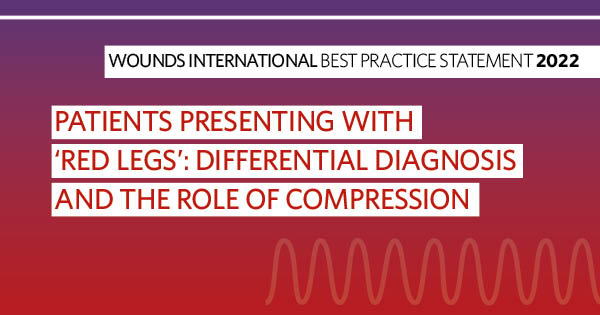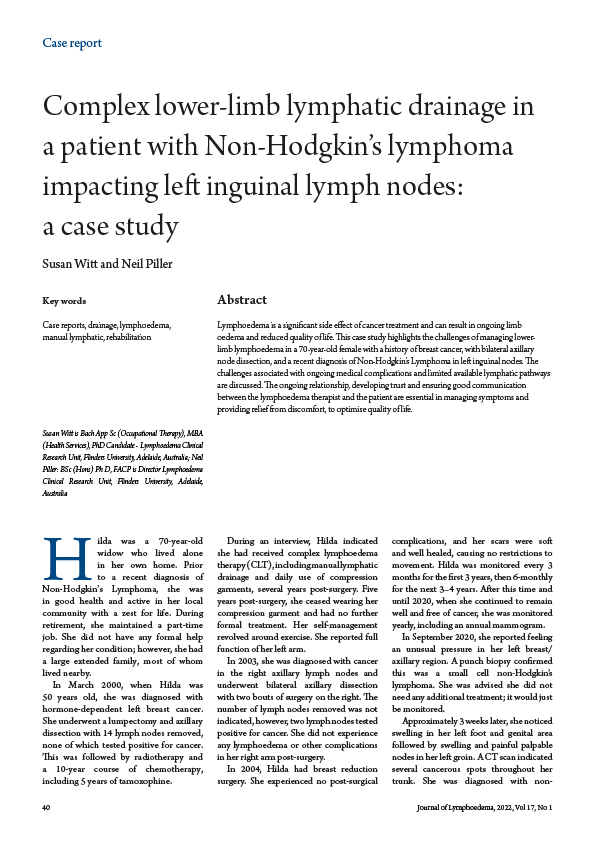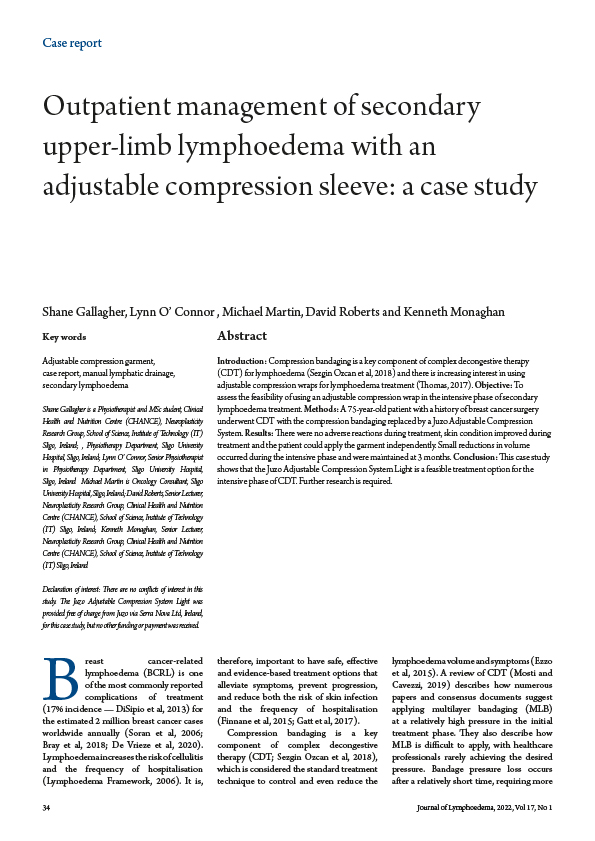<p>Background: A lymphoedema self-assessment tool can help therapists deliver appropriate advice, and prioritise patients who are on waiting lists or who cannot access a lymphoedema clinic. Aims: This pilot study aims to assess the validity and reliability of the Lymphoedema Self-Examination Survey (LYSES) and the relationship between outcomes obtained through LYSES and healthcare professionals’ lymphoedema assessment. Methods: Participants with lymphoedema (n=54) completed the LYSES, with the same survey repeated 1 week later. Bioimpedance measurement and International Society of Lymphology (ISL) staging were conducted by lymphoedema healthcare professionals, blinded to each other. Results: There was little agreement between self-reports of elevation being helpful and ISL staging of ≤I (к= −0.154), substantial agreement between self-reports of indentation and ISL staging of II (к=0.631), and poor agreement between self-reports and healthcare professionals’ reports of skin firmness and skin changes (>ISL stage IIb) (к=0.089 and к=0.466, respectively). Lymphoedema severity based on ISL staging was able to account for 31% of the variability in L-Dex rank scores (p=0.005). Conclusion: LYSES cannot be used as an accurate self-report survey.</p>



